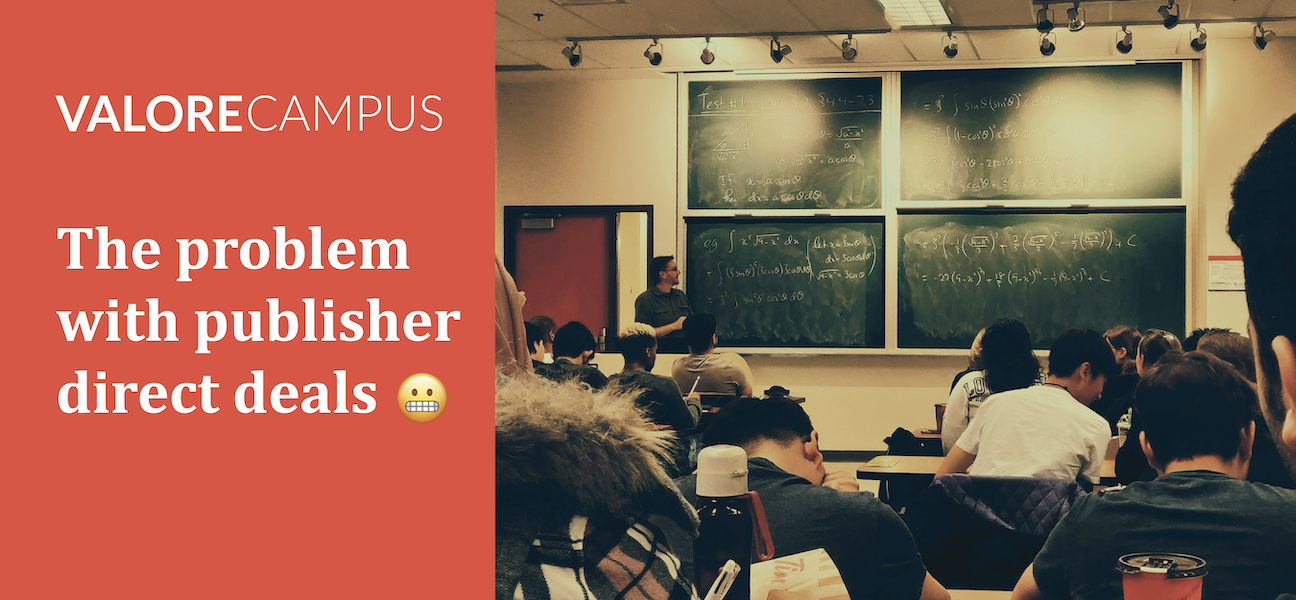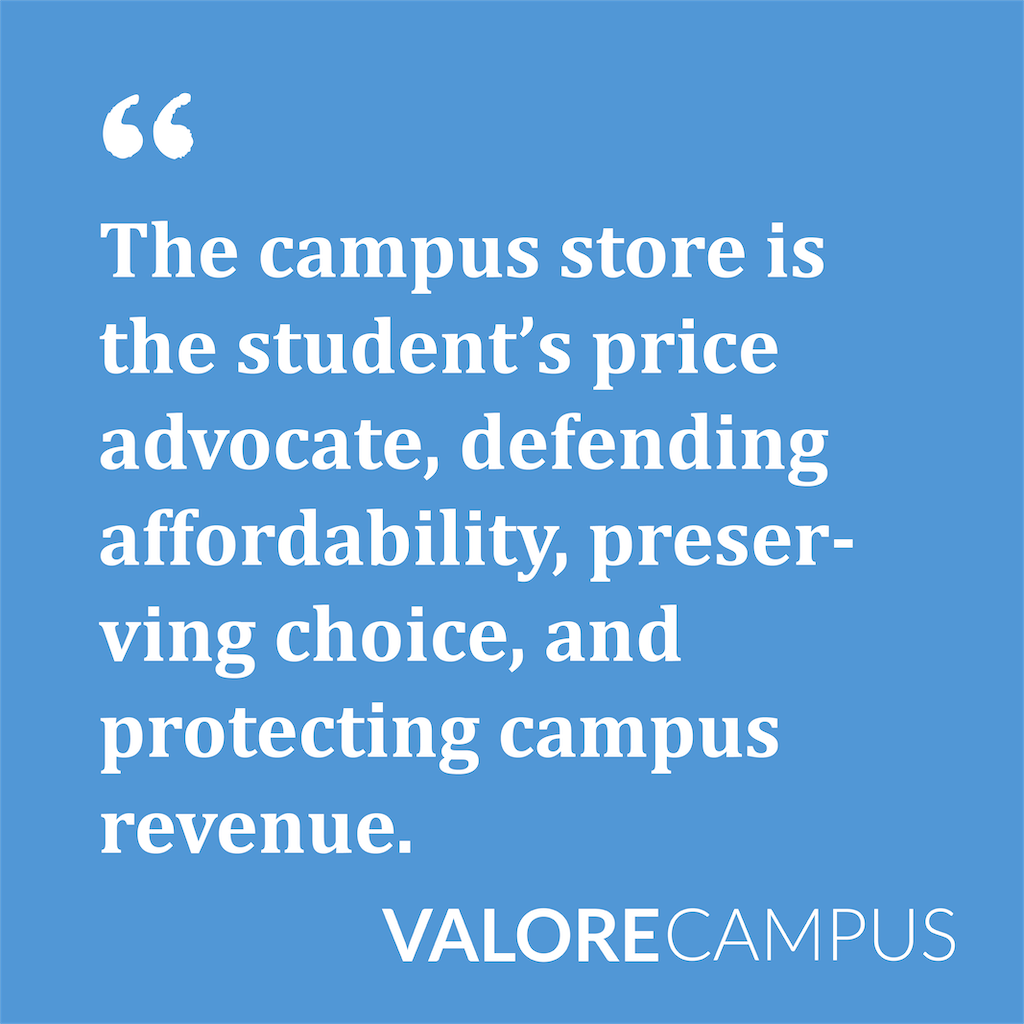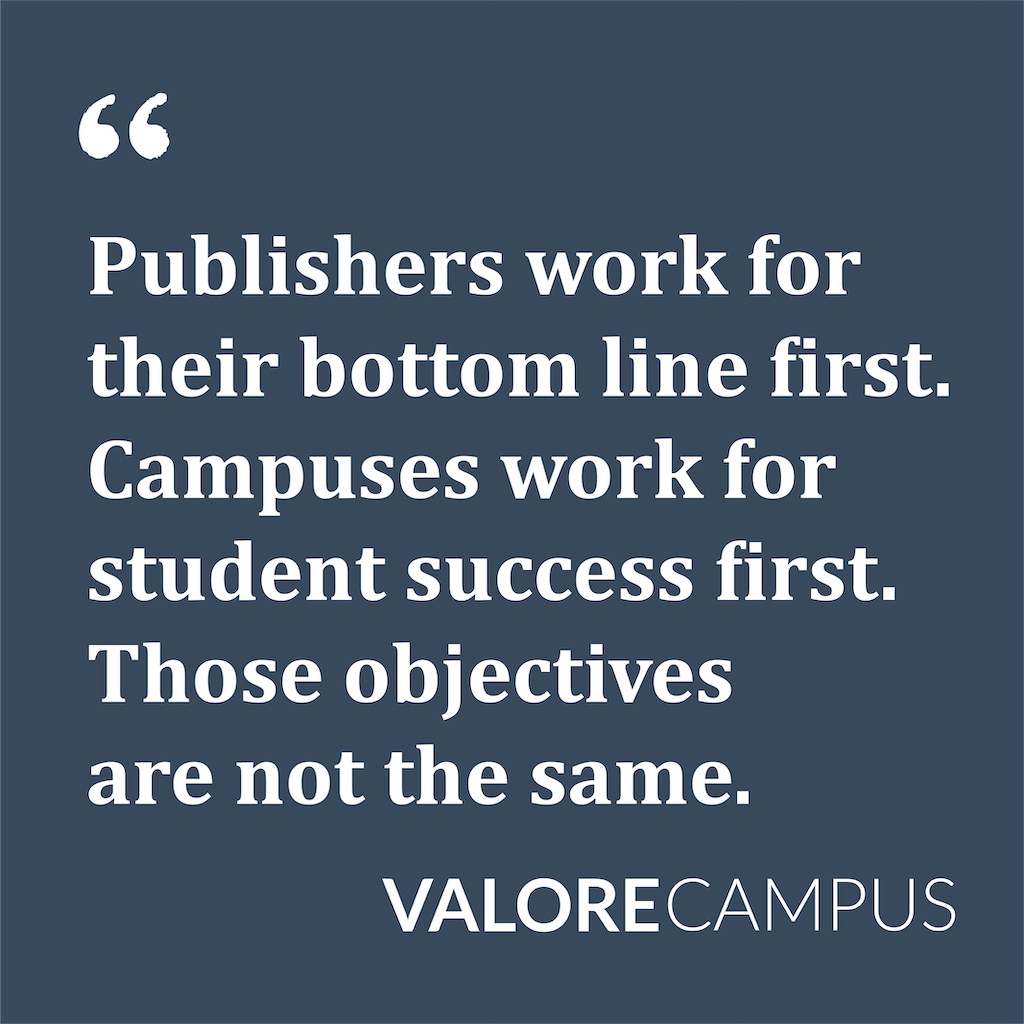
Protecting Revenue, Objectivity, and Student Outcomes
I'll start this post by saying that we work with publishers and deeply value our partnership with them. We also believe it is important to share the experiences we see first-hand on the campuses that we serve and work toward the best possible outcome for students.
In recent years, a troubling trend has emerged on many campuses: publishers are working directly with faculty to secure course material orders, bypassing the campus store entirely.
On the surface, it might seem like a harmless shift. In reality, it undermines the financial health of the campus, limits faculty choice, and puts students at risk of paying more, for less.
Here’s why keeping course materials management in the hands of the campus store is critical.
When students buy course materials directly from a publisher, all that revenue bypasses the campus. The money doesn’t contribute to scholarships, student programs, facility improvements, or other initiatives that benefit the very students in that classroom.
Students often assume that what they spend on course materials comes back to support their school. When the transaction goes directly to a publisher, that assumption is wrong, and neither they nor their faculty are likely aware of the missed opportunity.
Faculty deserve a trusted, objective partner in selecting course materials, not a single-source provider whose primary goal is to sell its own products.
When a publisher controls the conversation, they control the options:
A campus store's role is to present the full range of options, balancing educational goals, student preferences, and cost considerations.

When the bookstore steps out of the picture, there’s no one left to defend the student against rising costs. Over time, publishers can and do raise prices without resistance because the faculty aren’t the ones paying the bill.
A bookstore acts as a price advocate, monitoring increases, negotiating better rates, and sourcing affordable alternatives. Without that stewardship, prices can spiral upward and unchecked.
The cost of course materials isn’t just about the current semester. Over time, high and unpredictable costs can affect a school’s ability to recruit and retain students.
Publishers are driven by their own bottom line first. Campuses are driven by student success first. Those objectives are fundamentally different, and when the campus itself is cut out, the student’s interest is no longer at the center of the process.

Many schools have already lost significant revenue to direct-to-publisher models. When we partner with a campus, we implement the technology, communication, and training needed to bring that revenue back where it belongs, supporting the school and its students.
Final Thought: The campus bookstore isn’t just a place to buy books. It’s a safeguard for affordability, an advocate for faculty choice, and a source of critical revenue for student programs. Giving up control of course materials to publishers may seem convenient, but the long-term costs are too high. The best outcomes happen when the campus store leads the way.
Study on,
Alan
---
Alan Martin
VP Sales, Valore Campus